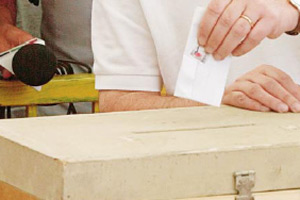Nationality is the «basic legal bond that determines the presence of people in a State».
This relationship allows everyone to demand the State to acknowledge and guarantee each person’s essential rights, as well as protection by law. At the same time, each person must respect the rights established by the State, such as complying with the law, honoring one’s country and its emblems, among other things.
International law states that nationality cannot be forced upon someone; everyone must have a nationality and double nationality is regulated by each country’s political Constitution.
The Chilean constitution establishes that nationality is obtained in two ways:
– Natural sources: due to origin or biological factors, which are related to birth. Two sets of criteria are used to determine nationality:
– Ius sanguinis or blood right: one takes on the parent’s nationality. It also goes for the children of a Chilean father or mother that is rendering services abroad and for the children of Chilean parents that were born in a foreign land and that have lived in Chile for more than one year.
– Ius solis or right of the soil: whoever is born on Chilean soil is Chilean. The exception are the children of foreigners that are serving their country or just passing through. They can apply for Chilean nationality as of the age of 21.
– Legal sources or by choice: The State may grant Chilean nationality to whoever petitions it through a nationalization letter. The prerequisites for the request are being 21 years old and having resided in our country for 5 or more years straight. In order to do so, they must give up their nationality of origin, unless there is a double nationality treaty between Chile and that country, like with Spain for example.
Another way of obtaining nationality is due to services rendered, an honored granted by the State to people that have stood out for their work for our country. In this case, one is not forced to give up their original nationality.
Citizenship
A citizen is the person that has political rights and enforces or makes them public in the country’s government. To have this condition one must be registered in the Electoral Service registry.
Being a citizen grants the right to vote in all elections, to apply for elected positions and other positions set forth in the Constitution or by law and to organize or be a member of a political party.
The Constitution states that Chileans over 18 years old that have no criminal convictions (specifically three years and one day or more in jail) can be citizens. Also, Chileans born abroad and people that have been granted nationality for services rendered are also considered citizens, although they must live in Chile for over a year.
In addition, foreigners over 18 that have lived in Chile for over five years and tat have not been convicted of a crime can vote.
Voting
Voting is one of the most important rights and duties of a citizen. The Constitution states that Chilean men or women that are over 18 and foreigners that have resided in the country for five or more years and who are registered in the electoral registry can vote.
In addition, the Constitution states that voting has the following attributes: it is personal, because it cannot be transferred; it is equal for all people, because every vote has the same weight; it is secret, for the votes do not carry the name of the person that issued it and it is mandatory for citizens.
There are some reasons due to which a citizen may be stripped of their right to vote:
– Due to dementia or a loss of the ability to reason.
– If the person is undergoing trial for a crime that can end up with jail time or for a crime that is considered terrorist conduct by law.
– People that have been sanctioned by the Constitutional Tribunal for having participated in an association or group that is considered unconstitutional, in accordance with subsection 15 of article 19. In this case, the right to vote is recovered five years after the tribunal’s resolution.








